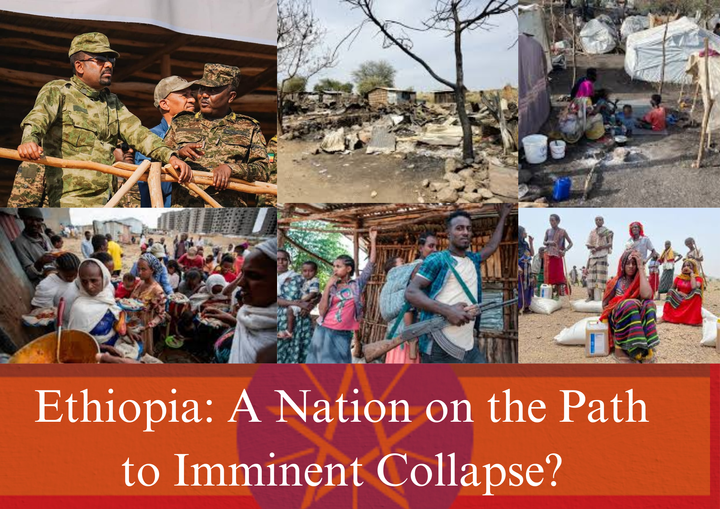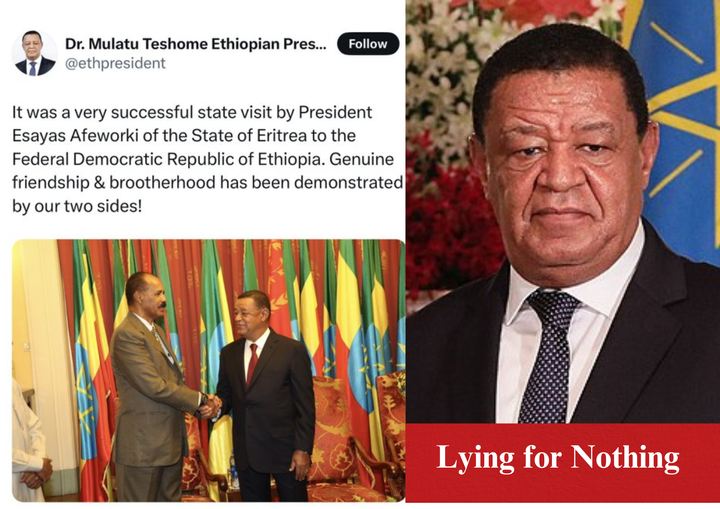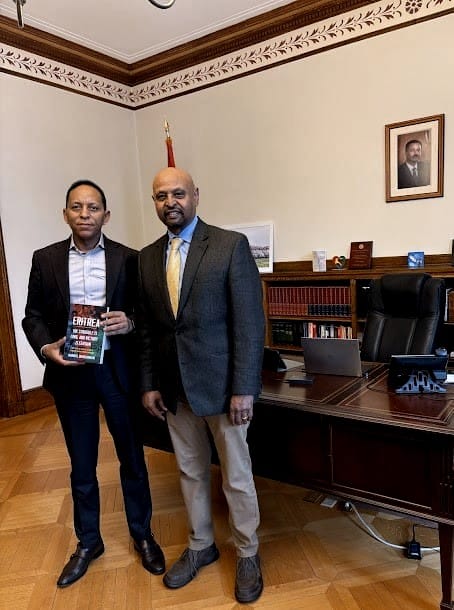How Eritrea and China Changed the Balance of Power in the Horn of Africa
This article examines how Eritrea & China have developed a strong partnership enhancing their regional economic & political interests. On the contrary, the US lost its leverage in the HOA by taking aggressive stands against Eritrea.

Amanuel Biedemariam Indepnece Day Special
Summary:
In 1963, Emperor Haile Selassie's visit to the US was met with a warm welcome from President Kennedy, with the Emperor being seen as an influential leader and a symbol of African unity and independence.
However, the past sixty years have brought drastic changes. Eritrea achieved de facto independence in 1991 and de jure independence in 1993 after a long and bloody war. Since then, it has become a significant player in the region’s politics and security.
Eritrea has also developed a strong partnership with China, which has invested heavily in its infrastructure, energy, health, and education sectors. This partnership with China has given Eritrea significant geopolitical leverage in the region.
This article examines the impact of Eritrea and China’s partnership on regional power dynamics. It shows how the United States has lost its leverage in the Horn of Africa by alienating Eritrea and imposing sanctions. It also explains the importance of having a strategic ally in a volatile and diverse region like the Horn of Africa.
The US in Africa Via Ethiopia at the Expense of Eritrea
During the aftermath of WWII, Emperor Haile Selassie of Ethiopia emerged as a prominent figure in Africa. He was celebrated worldwide for his struggle against the Italian invasion and was considered one of the founders of the Organization of African Unity.
In 1963, Selassie visited the US and met with President John F. Kennedy to discuss regional security, economic development, and cultural exchange. This visit marked a significant moment in US-Africa relations, highlighting the potential for cooperation and shared goals.
The US considered Ethiopia one of the most important nations, and Selassie was a visible and symbolic leader who achieved this status for over four decades.
The US carefully crafted narratives to position Emperor Haile Selassie as the victor against Italy when he was in exile while allied forces fought and won against Italy. Washington aimed to position Ethiopia as an ally of the West. Because having an African Nation as a supporter of the West was important symbolically.
To that end, The US asked Ethiopia to join the Korean War and used this participation to convince Congress that Ethiopia was an important ally.
The US exploited Ethiopia's participation as justification to assist Ethiopia militarily and elevate Selassie as Africa's most influential leader. Ethiopia became central to the US agenda in Africa.
1941 Eritrea was under the British Military Administration, and Ethiopia had no presence in Eritrea. The US wanted to establish a base in Eritrea but wanted to avoid appearing as a colonizer of Africa. Therefore, the US persuaded the UN to allow a federation between Ethiopia and Eritrea and used Eritrea as leverage over Ethiopia. The US gained a significant geopolitical advantage by accessing the Red Sea and Eritrea. The US established the Kagnew Station base in Asmara, Eritrea, a strategic asset that enabled the US to monitor and influence the region and the world.
The Red Sea is a vital global trade and commerce route connecting the Mediterranean and the Indian Ocean, making it a key waterway for strategic and military interests. After World War II, despite the West granting independence to other African nations, Eritrea had to fight for 30 years to achieve independence due to their denial of rights to exist by the US.
Following Eritrea's independence victory, beginning in 2018, the United States tried to weaken Eritrea's sovereignty. The US utilized the Tigray People's Liberation Front (TPLF) to wage ongoing conflicts. The US's unrelenting hostility involved imposing sanctions, supporting proxy wars, implementing economic sabotage, strategically reducing population, and attempting to overthrow the Eritrean government.
US Miscalculations Lead to Failures, Loss of Presence, and Influence
Recently, there has been a shift in power dynamics in Africa, with China and Russia expanding their influence in the region while the US’s influence has dwindled. One solution to this issue could be the US collaborating with Eritrea and recognizing the Eritrean people's right to exist peacefully. Unfortunately, the US has continued to follow outdated policies that have only weakened its influence in the region and caused immense suffering for the people of Eritrea. Despite these challenges, the Eritrean people have shown remarkable strength and resilience.
Eritrea gained its independence in 1993 after a long and brutal war of independence. Despite the war leaving the country in poverty and deindustrializing one of the most developed countries in Africa, the people of Eritrea worked towards development.
However, five years after Independence, they faced a proxy war launched by the TPLF, supported by the US and its allies. It included imposing sanctions and attempting to depopulate Eritrea by imposing economic hardships, keeping them on a war footing, and offering blanket asylum to anyone who left Eritrea. Washington and its allies blockaded the country for maximum harm.
Despite all these obstacles, the Eritrean people refused to give up and emerged triumphant.
Unlike the US, China has a long-standing friendship and cooperation with Eritrea that goes back to the 1960s. China was one of the first countries to support Eritrea’s liberation struggle. President Isaias Afwerki learned military and political skills in China in 1967. Ironically, sixty years after Emperor Haile Selassie's visit to the US, during his State Visit, President Isaias Afwerki thanked the Communist Party of China for their help to the Eritrean people’s quest for freedom.
China and Eritrea continue to have strong ties, with China helping Eritrea develop its infrastructure, energy, health, mining, education, and other sectors. They are respectful and supportive friends and partners who show how countries with different histories and sizes can cooperate for mutual benefit and common goals.
Conclusion
Despite their differences in size and background, Eritrea and China have demonstrated how two nations can collaborate towards mutual gains and shared objectives. They have also shown how the balance of power in the Horn of Africa has evolved over the last six decades. In contrast, the United States' failure to support and engage with Eritrea has resulted in losing its influence and bargaining power in the region. The strategic partnership between Eritrea and China exemplifies how the world is constantly changing, and nations must adjust and collaborate in a complex and dynamic environment.




Comments ()